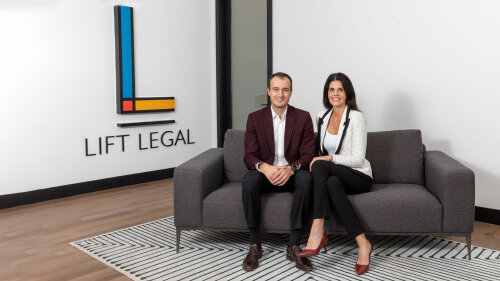Best Child Abuse Lawyers in St. Albert
Share your needs with us, get contacted by law firms.
Free. Takes 2 min.
Free Guide to Hiring a Family Lawyer
List of the best lawyers in St. Albert, Canada
About Child Abuse Law in St. Albert, Canada
Child abuse in St. Albert, Canada, is taken very seriously by law enforcement, social services, and the community as a whole. Child abuse refers to any action or lack of action by a parent, caregiver, or other adult that results in emotional, physical, or sexual harm to a child. In St. Albert, like the rest of Alberta and Canada, the protection of children is a primary concern and is governed by both federal and provincial legislation. Allegations are thoroughly investigated, and multiple agencies often work together to ensure the safety and well-being of children.
Why You May Need a Lawyer
There are several situations where seeking legal counsel in matters of child abuse becomes necessary, including:
- If you are accused or suspected of committing child abuse, whether substantiated or unsubstantiated.
- If you believe a child has been or is at risk of being abused and want to understand your reporting obligations and rights.
- If Child and Family Services has initiated an investigation or has removed your child from your care.
- If you wish to challenge decisions made by social workers or the courts relating to custody or access.
- If you are seeking to adopt or foster a child and require background checks or legal information about the process.
- If you are a professional (teacher, nurse, etc.) with questions about your legal reporting obligations.
Because child abuse cases are highly sensitive, legal proceedings can be complex and may have long-lasting consequences. Legal advice ensures your rights are protected and that you understand your options every step of the way.
Local Laws Overview
In St. Albert, child abuse laws operate under the broader legislative frameworks of Alberta and Canada. Key laws include the Child, Youth and Family Enhancement Act (Alberta) and the Criminal Code of Canada. Notable aspects include:
- Mandatory Reporting: Everyone in Alberta has a legal duty to report suspected child abuse. Failing to report may have legal consequences.
- Types of Abuse Addressed: Physical, emotional, sexual abuse, and neglect are all recognized and prosecuted.
- Investigation Process: Reports are investigated by Child and Family Services, and if warranted, by police. Temporary or permanent removal of the child from the home can occur.
- Protective Orders: Courts can issue orders such as supervision orders or restraining orders to protect children.
- Criminal Charges: Severe cases may lead to criminal prosecution under the Criminal Code, carrying significant penalties upon conviction.
- Rights of the Accused: Accused parties have the right to legal representation and a fair trial, but may also face restrictions (such as no-contact orders) during proceedings.
Frequently Asked Questions
What should I do if I suspect a child is being abused?
If you suspect abuse, you are legally required to report it immediately to Child and Family Services (CFS) or the police. You do not need proof-reasonable suspicion is enough.
What agencies are involved in child abuse cases in St. Albert?
Local agencies involved include the RCMP (police), Alberta Child and Family Services, healthcare professionals, and, occasionally, the courts or child advocacy centres.
What happens after I make a report?
CFS or police will investigate. They may interview the child, family members, and witnesses. If they find the child is at risk, protective measures (including removal from the home) may be taken.
Can I remain anonymous when reporting child abuse?
You can ask to remain anonymous, but in some situations, your identity may be disclosed if legally required (such as during court proceedings).
What legal rights do parents have if accused of child abuse?
Parents have the right to know the allegations, seek legal representation, and challenge CFS or court decisions regarding their children.
Are there time limits for taking legal action in child abuse cases?
Criminal prosecutions can occur many years after the alleged abuse. Civil claims and family law matters may have varying limitation periods. Consulting a lawyer is crucial for timelines.
What are the potential consequences of a child abuse allegation?
Consequences may include loss of custody, criminal charges, employment impacts (especially for professionals), and reputational harm, even if charges are not pursued.
How can a lawyer help in a child abuse case?
A lawyer provides advice, represents you during investigations and court proceedings, helps protect your rights, and guides you through complex legal processes.
Can non-custodial adults (like teachers or coaches) be charged with child abuse?
Yes. Any adult, regardless of their relationship to the child, can face child abuse allegations and charges if there is evidence of harm or risk of harm.
Are children allowed to testify in court?
Yes, children may be called to testify, but there are safeguards in place to protect their well-being, such as testifying via video link or through a support person.
Additional Resources
Several organizations and governmental bodies offer support, information, and assistance related to child abuse in St. Albert:
- Alberta Child and Family Services - Investigates abuse, provides protection and support, and offers resources for families.
- RCMP (St. Albert Detachment) - Handles the criminal aspects of child abuse investigations.
- Children's Services Helpline - Offers 24/7 support and guidance for reporting abuse or seeking advice (dial 1-800-387-5437).
- St. Albert Family Resource Centre - Provides parenting programs, counseling, and referrals to legal resources.
- Alberta Law Line - Delivers free legal advice over the phone, including for child protection matters.
- Legal Aid Alberta - Assists those who cannot afford a lawyer in child protection and criminal matters.
- Victim Services - Supplies support for children and families affected by abuse, including navigating the court process.
Next Steps
If you are facing a situation involving child abuse-whether you are accused, a concerned third party, or a family in crisis-it is important to act promptly:
- Contact local authorities or Child and Family Services immediately if a child is in danger.
- Consult with a qualified family law or criminal defense lawyer who has experience with child abuse cases in Alberta.
- Gather any relevant documentation or evidence, such as records, testimony, or correspondence.
- Ensure open and honest communication with your legal counsel so they can best represent your interests.
- Make use of local resources for emotional support, guidance, and practical assistance.
Remember, legal cases involving child abuse are highly sensitive and complex. Prompt legal guidance can help ensure the best possible outcome for everyone involved, especially the children whose safety must always come first.
Lawzana helps you find the best lawyers and law firms in St. Albert through a curated and pre-screened list of qualified legal professionals. Our platform offers rankings and detailed profiles of attorneys and law firms, allowing you to compare based on practice areas, including Child Abuse, experience, and client feedback.
Each profile includes a description of the firm's areas of practice, client reviews, team members and partners, year of establishment, spoken languages, office locations, contact information, social media presence, and any published articles or resources. Most firms on our platform speak English and are experienced in both local and international legal matters.
Get a quote from top-rated law firms in St. Albert, Canada — quickly, securely, and without unnecessary hassle.
Disclaimer:
The information provided on this page is for general informational purposes only and does not constitute legal advice. While we strive to ensure the accuracy and relevance of the content, legal information may change over time, and interpretations of the law can vary. You should always consult with a qualified legal professional for advice specific to your situation.
We disclaim all liability for actions taken or not taken based on the content of this page. If you believe any information is incorrect or outdated, please contact us, and we will review and update it where appropriate.









